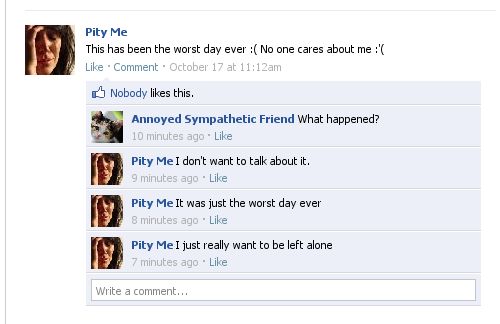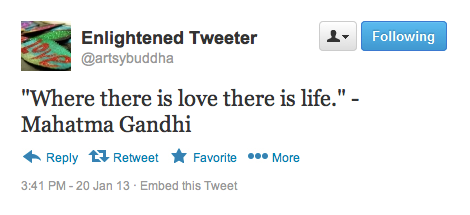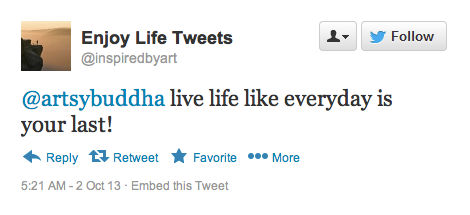In its glory days, social media was once a place for making friends, sharing stories and keeping in touch with family. Unfortunately this is no longer the case. Websites such as Facebook and Twitter have become people’s diaries – an empty stage set for a dramatic and completely irrelevant soliloquy.
For most people nowadays, the “status update” and/or “tweet” is now a weapon of image-shaping and self-preservation. While scrolling through the feed of posts, we hardly ever find anything remotely relevant to us. This selfishness on social media is not only distasteful, but annoying.
Statuses, while they may appear varied and vibrant to the untrained eye, can be categorized easily: bragging rights, self-pity and “the path to enlightenment.” Everyone, myself included, falls victim to these at least once. But it is important to educate the masses on this discrepancy in social media in order to prevent the plague from spreading.
Bragging Rights
These types of statuses are often the easiest to identify. If the status is a generally inflammatory statement making it seem like the author is better than everyone else, it is most likely this form of horror. However, this status is often “allowed” because it is passed off as an amusing story and/or backdrop to something that seems mildly relevant to the reader. The true motive for this type of status is for the author to brag about how great his/her life is and make others feel insignificant.
Ex. Wow! Mom has been calling my old house leaving messages about picking her up toilet paper! She totally forgot I moved to the beach bungalow to live with my chiseled/beautiful boyfriend/girlfriend. Silly mom! (Beach Lyfe)
Here we have the cleverly disguised braggart. He/She is blatantly misleading the reader to believing that this status is indeed a cute and embarrassing story about his/her mother. However, that is clearly not the case. Notice the third sentence that is an over-embellished version of “I moved to a new place.” Here the author has given the reader excess information.
The status is forcing the reader to acknowledge that the author lives on the beach in a bungalow – who wouldn’t want that lifestyle? Not to mention the socialite has a partner that is attractive. Is anybody’s blood boiling yet?
The sole motivation for this status is to make others feel small and unwanted. The author feels a sense of empowerment because he/she has an opportunity to brag away without being called out. This is a harmful post.
Self-Pity
This type of status, also referred to as the “Pay Attention to Me” post, is the most infamous. Everyone has the right to feel sad, confused, angry, lost, but people take this too far when they start begging for people’s attention and pity.
Ex. This has been the worst day ever 🙁 (Pity Me)
Offense Number 1: The person posting the status assumes the reader is actually interested in why the person is upset.
Offense Number 2: If the reader has been courteous enough to spare some attention with What’s wrong? or What happened?, the author often does not even give a reason!
This leads to a subcategory of authors: “silent but deadly” and “loud and proud.” Silent But Deadly will not comment on the post at all and sit in the shadows of the interwebs, glaring at the massing comments of concern. Loud and Proud will quickly respond to the “fan mail” with I don’t want to talk about it or Nothing, its fine when clearly it isn’t. The easiest way to prevent this from happening is to ignore the desperate cry for attention.
The Path to Enlightenment
Statuses that find themselves in this category are mainly quotes from famous and influential people. The main purpose of these statuses is to make readers think the author is smart and intelligent.
Ex. Where there is love there is life. -Mahatma Gandhi (Enlightened Tweeter)
The quote itself is actually quite acceptable. The discrepancy lies in the motives for posting. People often illuminate the news feed with these quotes to remind people that they are a higher-thinking being and also in a state of enlightenment. People want to be viewed as smart and as having something to say about life.
In another form of the Path to Enlightenment, the status could be a general or “original” statement that provides “insight.”
Ex. Live life like everyday is your last! (Enjoy Life Tweets)
Never heard that one before.
Social media has become the primary way of crafting one’s image. People abuse the power of Facebook and Twitter to present themselves as something they’re not. Deception has always been present, but it is much easier thanks to social networking sites.
The best way to be not-annoying on social media is to know what types of statuses are unamusing to the public. By thinking before you type, you can make social networking much more enjoyable for everyone.







